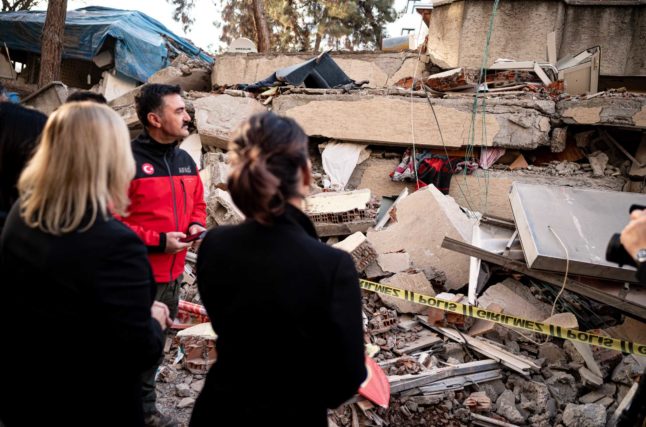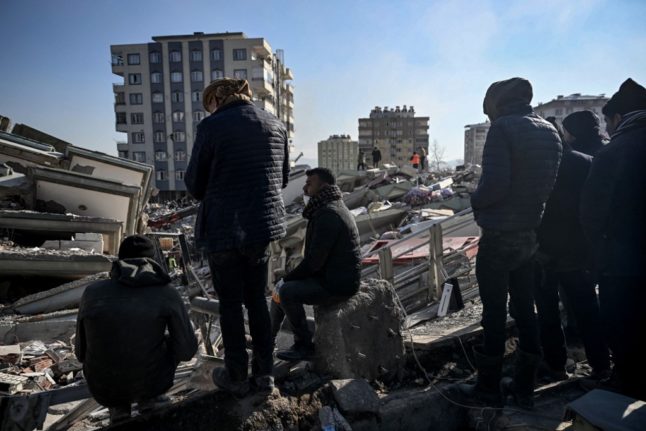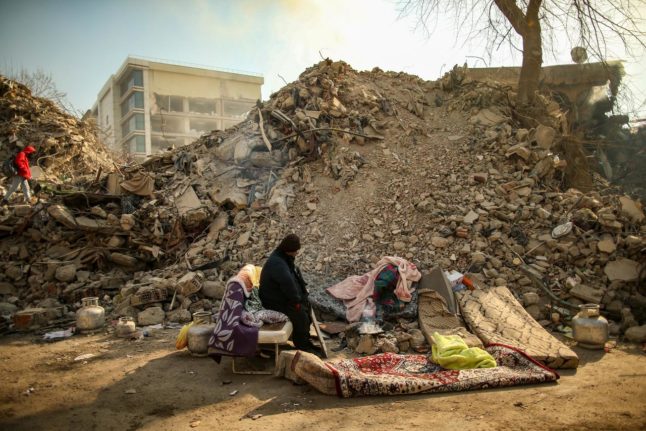Foreign Minister Annalena Baerbock said Germany wants “to make it clear that we, as a global community, see this catastrophe and we support the population”.
Baerbock was speaking during a visit Tuesday to Pazarcik, in southern Turkey, along with German Interior Minister Nancy Faeser.
Of the new aid, 33 million euros will go to Turkey and 17 million to northern Syria, bringing Germany’s contribution to 108 million euros in the region hit by a deadly earthquake which has killed nearly 46,000.
“We’re trying to get as much aid as possible into Syria, especially in the north of this country, through the crossings that have been opened, but the Syrian regime continues to obstruct the efforts of the United Nations,” said Baerbock.
Two weeks after the disaster, aid has been arriving slowly in northwestern Syria, a country torn apart by a civil war.
The ministers confirmed that three-month visas will be granted to Turkish and Syrian earthquake victims who have family members in Germany.
According to the German foreign ministry, around 100 visas have been issued so far.
Around 2.9 million people of Turkish origin live in Germany. The Syrian community is also large and is estimated at 924,000.
READ ALSO: Turkish community in Germany gathers to help earthquake victims




 Please whitelist us to continue reading.
Please whitelist us to continue reading.
Member comments